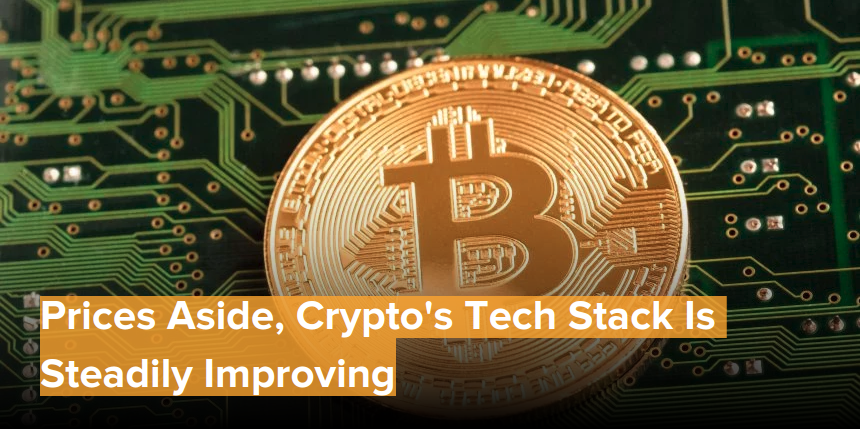
Gemini vs Coinbase – which one is better?
Gemini vs Coinbase – which one is better?
According to a recent report, cryptocurrency searches have almost tripled over the last six months. This is in light of the current COVID-19 pandemic which has brought the world to its knees. People are fully aware that the ongoing crisis is going to adversely affect the economy hence they are looking for a haven to store their wealth. Normally they would turn to gold, but as they say “cryptocurrencies are the new gold.” This leads us to the next very critical question; what is a cryptocurrency? I would like to believe that most of my readers have come across this term before because cryptocurrencies have been making headlines and grabbing so much attention lately. However, for those who have never heard of this term before, you have so much catching up to do; but don’t you worry because I’ve got you covered.
Cryptocurrencies are digital coins whose operation is exclusively online.
Most of them do not have a physical representation. Also, they have the same uses as the fiat money we are accustomed to. Some common cryptocurrencies include Bitcoin, Ethereum, Ripple, Bitcoin Cash, and Monero. One of the many ways in which cryptocurrencies differ from traditional money is in the way that they are acquired. While traditional money is distributed by central banks, cryptocurrencies are bought from online exchanges. As a beginner in crypto, you need an exchange that is user-friendly and available in your country. Very many people want to embark on their cryptocurrency journey but do not know just where to start. Today there are very many exchanges to choose from; Gemini and Coinbase are two of the biggest and most trusted exchanges out here. The following “Gemini vs Coinbase” review explores the two exchanges in such a way that you will be able to make an informed decision about which one suits you best
Gemini vs Coinbase: what is Gemini?
Gemini is a well-respected cryptocurrency exchange which was founded in 2015. Its mane is a reference to the zodiac sign that depicts a pair of twins which is quite clever because it is the brainchild of the Winklevoss twins. Its creators are two of the earliest investors in Bitcoin. With its headquarters in New York and strict compliance with existing regulation; the exchange has quickly become a favorite among high-volume investors and institutional traders. One of its outstanding features is that it offers extra security to its users, unlike most other exchanges. This exchange is all-rounded; it allows its users to purchase cryptocurrencies using fiat money which is not the case for many exchanges. It also offers an “on and off-ramp” to cryptocurrency making it a direct competitor with the likes of CEX.io, Kraken, and Bitstamp. It also offers users a lot of extra security features that are lacking in many exchanges.
Distinctive Features
- Has highly respected staples of the cryptocurrency industry
- Offers both bank and wire deposit options
- Responsive customer support
- Allows both cryptocurrency and fiat money withdrawals
- Offers advanced trading options in the form of different kinds of buy and sell orders
- Within the US, it accepts deposits made using Automated Clearing House (ACH)
- Gemini supported states include Hong Kong, Puerto Rico, South Korea, Canada, and the US
- Accepts both cryptocurrency and fiat money
- Offline storage of cryptocurrency and fiat money to protect from hacking
Coinbase Vs Gemini: what is Coinbase?
Coinbase is arguably the most popular digital currency globally. Its headquarters are currently in San Francisco, California and it was established by Fred Ehrsam and Brian Armstrong in 2011. Coinbase is user-friendly and easy to maneuver as compared to other exchanges. It also offers various options for buying and purchasing different digital assets. Most cryptocurrency exchanges are advanced with sophisticated buying and selling options such as ‘limit orders’ and ‘market orders’. It is the absence of these sophisticated features that make Coinbase well suited for beginners. Once you get accustomed to the exchange you can then progress to GDAX which is a more advanced platform that is associated with Coinbase.
Distinctive features
- Available in over 100+ countries including USA, UK, Canada, Singapore, and Australia
- It offers very responsive customer support
- Deals with both cryptocurrency and fiat money
- Offers simplified instant buying options
- Bitcoin Cash and Litecoin are available
- Both the money and cryptocurrency are stored offline for protection from hacking
Gemini vs Coinbase: How is Gemini better than Coinbase?
- Better security
First of all, both exchanges take their customers’ protection very seriously and have additional security measures in place. They both separate the users’ money from the money which they use to operate. And also enforce the two-factor authentication which decreases the likelihood of an account being hacked or phished. Those are just a few of the security measures that both exchanges have put in place.
Gemini however, takes some extreme measures to secure its customers’ funds. They have secured the few digital assets that are stored online in a hot wallet using Amazon Web Services which high level of security controls. Also, only high-level employees can access the coins stored on hot wallets not to mention the hot wallets are accessed through multi-factor authentication (more advanced than two-factor authentication). They use two-level cold storage whose access to cold storage requires the simultaneous actions of more than one employee, thus increasing security. Both hot and cold wallet keys are secured on hardware that has passed a high level of security checks. Lastly, security hardware comes from different manufacturers to prevent supply-chain issues. These extreme measures could be the reason why it was picked by the Chicago Board Options Exchange to settle its Bitcoin futures in 2017. Its high-security precautions make it a better alternative for professional traders who store large volumes of cryptocurrency. However, be advised that exchanges are not suitable for long term storage.
2. Lower fees
Gemini outperforms Coinbase when it comes to fees; they are your best bet to save as much as possible on fees. It does not charge fees for deposits or withdrawals and it only charges a 0.25% or even less fee for trading. Coinbase on the other hand charges around 1.49% for bank transfers and purchases and 3.99% for credit/debit card purchases. Thanks to their very low fees, Gemini is the best alternative for high-volume traders. Most professional traders feel that Coinbase eats a very huge chunk of their profits.
Coinbase vs Gemini: How is Coinbase better than Gemini?
- User-friendliness
Coinbase certainly beats Gemini when it comes to user-friendliness. Their website is not only easy to maneuver but also quite responsive. They offer an immediate option for buying and selling digital coins. You can signup, make a deposit into the site and successfully buy your first cryptocurrency in just a matter of seconds. Although the registration at both Gemini and Coinbase is pretty much alike, Coinbase is much easier for a beginner to maneuver. There are no confusing terms, you just log in and conduct your transactions. Gemini is friendlier for experienced traders because it has more advanced features; it offers a clutter-free interface, clean and the options are set out. However, for an absolute beginner, Coinbase is the charm.
- Higher trade volumes
Most new users make their first few purchases using Coinbase because it is very user friendly; it is therefore not surprising that the exchange trades more coins than Gemini. For instance, in 5 months. Coinbase can trade over 5.20 BTC while Gemini only trades 1.7 BTC.
- Coin availability
While both platforms offer a small variety of cryptocurrencies, Coinbase has a better coin availability than Gemini. They provide Bitcoin, Ethereum, Litecoin, and Bitcoin Cash; while Gemini provides Bitcoin and Ethereum only. This makes Coinbase a better option for traders who prefer to deal with a wider variety of coins.
- Extensive deposit methods
Coinbase and Gemini both have different ways of funding their customers’ accounts. However, Coinbase offers more extensive deposit methods; their customers can buy their digital coins using a debit card, a credit card or a bank transfer. While Gemini only offers the bank transfer option. Cryptocurrency deposits are welcome for the specific cryptocurrencies supported by either exchange. Withdrawals follow the same deposit methods for either exchange.
- Offers higher purchasing limits
Coinbase does not give any clear limits on new customers; instead, these limits are dictated by factors such as account verification, buying history and account age. The customer’s limit is shown on his/her account’s verification page. Bank transfer limits can reach up to $5,000 per week while credit card limits can go up to $60 per week. Gemini, on the other hand, has predefined bank transfers purchasing limits of $ 500 per day. Therefore, Coinbase is your better option if you are looking to immediately lock in a price higher than $500. Lastly, both Gemini and Coinbase offer wire transfers for those users looking to deposit larger sums; though prior direct communication with them is mandatory.
Conclusion
There you have it! Our complete guide of Gemini vs Coinbase. I hope that helped in distinguishing between the two exchanges. Coinbase is recommended for beginners; despite its high fees the convenience and user-friendliness are commendable. It is also the best option for you if you want to use a credit card. Gemini, on the other hand, is best for experienced traders, those who want to take their trading to another level. It is also a great option when it comes to saving on fees. With both sites being trustworthy, secure and very responsive to their customers; the winner of the Gemini vs Coinbase battle boils down to the user’s needs and preferences. What do you think? Which one is better? Is it Gemini or is it Coinbase?
Article Produced By
Zerocrypted
https://zerocrypted.com/gemini-vs-coinbase-which-one-is-better/
David



